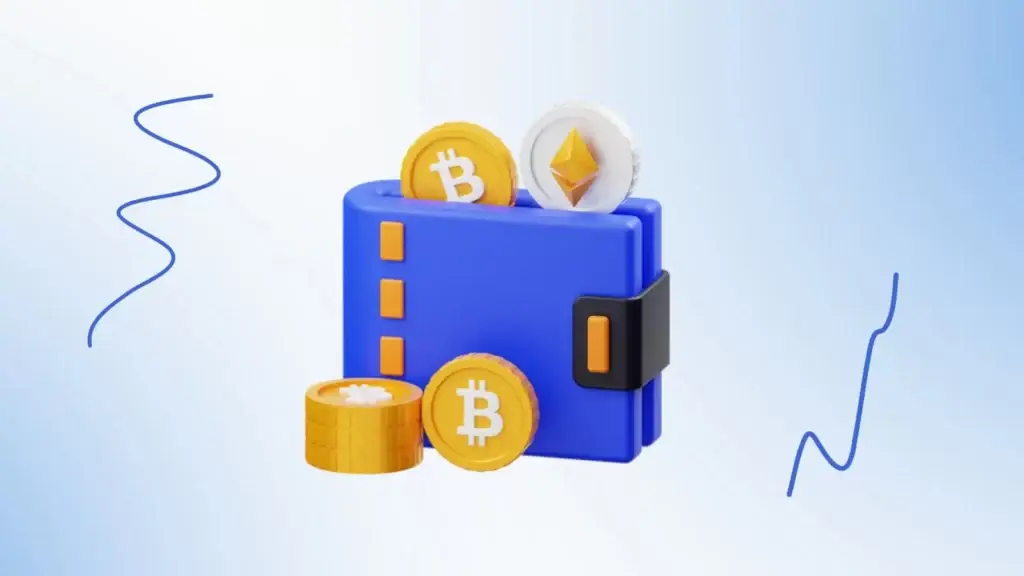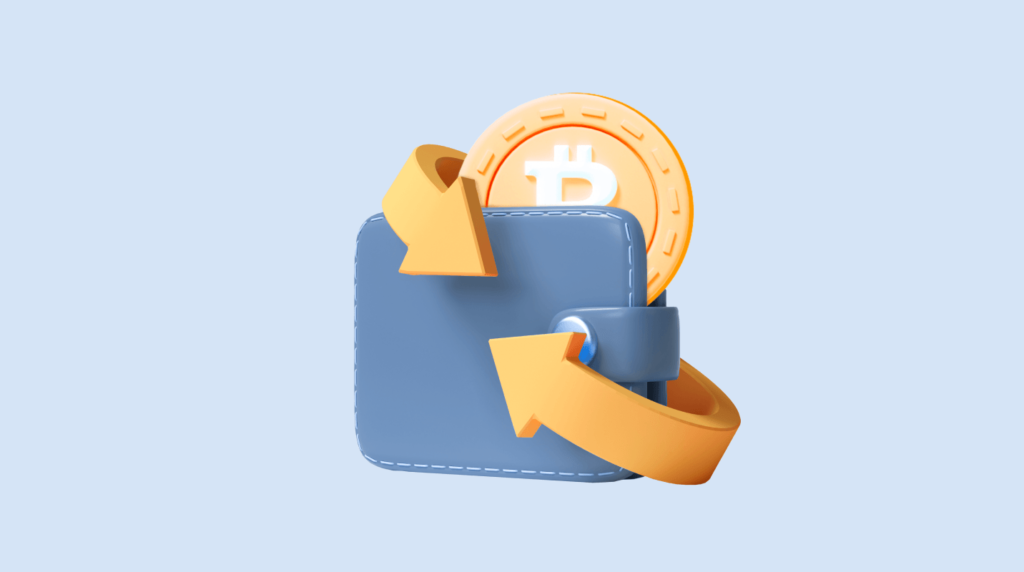Keeping money under the pillow has long ceased to ensure security. Paper banknotes depreciate, and bank accounts are subject to the risk of being blocked. In the digital age, new forms of money emerge, and one of them is cryptocurrency. However, simply buying Bitcoin or Ethereum is not enough to have it – you also need to store it properly. And this is where a cryptocurrency wallet comes into play – a key tool for the safety of digital assets.
Cryptocurrency Wallet – Why It Matters
A crypto wallet is not just a storage. It is the key to the world of blockchain and digital assets. Without a reliable wallet, cryptocurrency is at risk of becoming vulnerable to fraudsters and hackers, and unfortunately, stories of such losses are common. High-profile cases of cryptocurrency theft amounting to millions of dollars only underscore the need for a careful approach to choosing a wallet. Imagine a key to a safe where gold bars are stored: that’s exactly what a crypto wallet is.

In addition to security, a wallet allows you to manage funds, send and receive cryptocurrency, and store it regardless of external circumstances. Traditional banks are subject to sanctions, inflation, crises. A cryptocurrency wallet remains independent of all this, providing complete freedom of access to assets.
A cryptocurrency wallet becomes a necessary tool in the modern world, where finances are transitioning into the digital realm. Without it, any crypto investor finds themselves in a risky situation, as access to crypto is only possible through special software or hardware.
How to Choose a Cryptocurrency Wallet: A Guide for Beginners
The question is not simple, as the market offers many options, each with its own features. When choosing a crypto wallet, several key factors should be considered:
- Security. Not all wallets are equally secure. Some store private keys on remote servers, while others on physical devices. The more complex the access for hackers, the safer the funds.
- Wallet Type: hot or cold? Hot wallets are convenient for quick operations but lag behind cold wallets in terms of security.
- Supported Currencies. If a multi-currency wallet is needed, it is important to consider which currencies it supports. Many programs work with dozens of cryptocurrencies, but it is more important to find one that supports the needed ones.
For beginners, a wallet should be simple and user-friendly, with an intuitive interface. Many newcomers make the mistake of choosing options designed for professionals and get lost in complex settings.
Example: Oleg, a newcomer to the world of cryptocurrencies, decided to store his bitcoins in a hot wallet. After a phishing attack, he lost all his savings. If he had studied information about wallet types in advance, he would have chosen a more secure solution.
Hot Wallet: Fast and Convenient, but with Caveats
A hot wallet is a digital storage that is always connected to the internet. Its main advantage is convenience. Funds are always at hand, transfers can be made in seconds without leaving the phone application. This solution is suitable for daily operations, like a digital equivalent of a regular wallet where cash is kept for daily expenses.
However, hot wallets have significant drawbacks. They are more susceptible to the risk of hacker attacks. History knows many cases where they were hacked, and users lost their funds. Therefore, hot wallets are recommended only for small amounts intended for daily transactions.
Cold Wallet: Security Above All
 It provides the highest level of security for storing assets. This physical device is not connected to the internet, making it immune to hacker attacks. It can be compared to a digital version of a bank safe. Many major investors prefer cold wallets for long-term cryptocurrency storage as they guarantee maximum protection.
It provides the highest level of security for storing assets. This physical device is not connected to the internet, making it immune to hacker attacks. It can be compared to a digital version of a bank safe. Many major investors prefer cold wallets for long-term cryptocurrency storage as they guarantee maximum protection.
Popular examples of cold wallets are Ledger and Trezor. They resemble flash drives and store users’ private keys, preventing hackers from accessing the funds. However, like any safe, a cold wallet requires careful handling: losing access to the device can lead to the loss of all funds if backups were not made.
Software Wallet: A Universal Option for Everyone
A software wallet is an application for a computer or smartphone that allows managing cryptocurrencies. It comes in different types: mobile, desktop, and even browser extensions. Its advantage is universality and accessibility. Install the application, create a wallet, and the cryptocurrency is already at your fingertips.
However, the convenience of software wallets is accompanied by risks. The system can be hacked through malware, and a smartphone can be lost or stolen. Using strong passwords and two-factor authentication helps minimize risks. Software wallets are great for those who actively use cryptocurrency for transactions, not just for storage.
Multi-Currency Wallet: One for All
A multi-currency wallet is a convenient solution for those working with multiple cryptocurrencies. Instead of using separate programs for Bitcoin, Ethereum, and other assets, it is advisable to opt for a multi-currency version. It allows storing everything in one place. This is convenient and saves time, as there is no need to switch between different applications.
One popular example is Exodus – it supports dozens of cryptocurrencies and provides a user-friendly interface. Such a wallet is ideal for both beginners and professionals who want to centrally manage all their assets.
Bitcoin and Ethereum Wallet: Key Differences
Bitcoin and Ethereum wallets differ in how they interact with the blockchains of these cryptocurrencies. Bitcoin is the oldest and most stable crypto, for which many specialized wallets have been created. They provide maximum security and support all possible functions related to Bitcoin.
In addition to storage, Ethereum is used for interacting with decentralized applications (dApps), so many wallets supporting this cryptocurrency have built-in features for working with such applications. For example, the MetaMask wallet allows not only storing Ether but also interacting with numerous dApps, making it indispensable for active Ethereum blockchain users.
Best Cryptocurrency Wallet: Recommendations for Different Cases
Choosing the perfect cryptocurrency wallet depends on the user’s specific tasks. For beginners, hot wallets with a simple interface, such as Trust Wallet, are best suited. For long-term and secure asset storage, cold wallets like Ledger or Trezor, which provide a high level of protection, should be chosen.

Experienced traders who actively work with multiple cryptocurrencies often prefer multi-currency wallets, such as Atomic Wallet or Exodus, due to their numerous features and user-friendliness. Each user should choose based on their goals and needs, as there is no universal solution – it all depends on individual requirements.
Take a Step Towards Securely Storing Your Assets
 The modern world requires new approaches to financial management, and a crypto wallet becomes one of the main tools for those who want to remain independent of traditional financial systems. Whether a wallet is needed for Bitcoin, Ethereum, or for storing various cryptocurrencies, the right choice will ensure the security and convenience of asset management.
The modern world requires new approaches to financial management, and a crypto wallet becomes one of the main tools for those who want to remain independent of traditional financial systems. Whether a wallet is needed for Bitcoin, Ethereum, or for storing various cryptocurrencies, the right choice will ensure the security and convenience of asset management.
 en
en  ru
ru  de
de  ar
ar  es
es  nl
nl  hi
hi  fr
fr  it
it  pt
pt  el
el 



